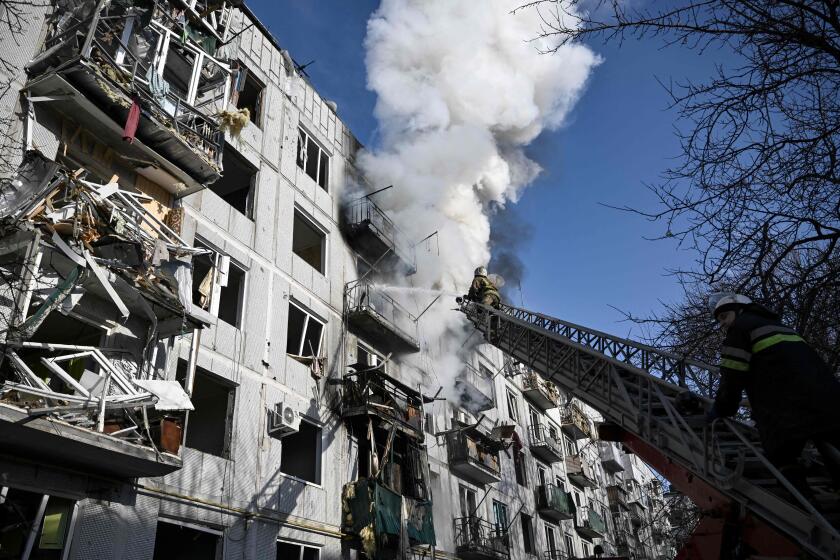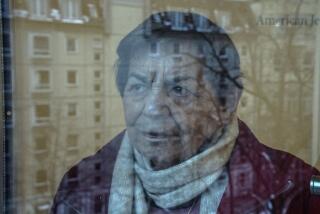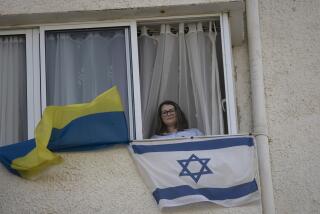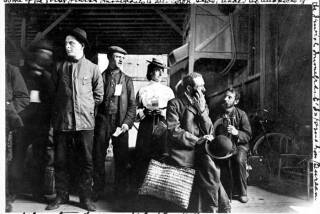Ukraine’s Jews seek refuge in synagogues as Russia invades
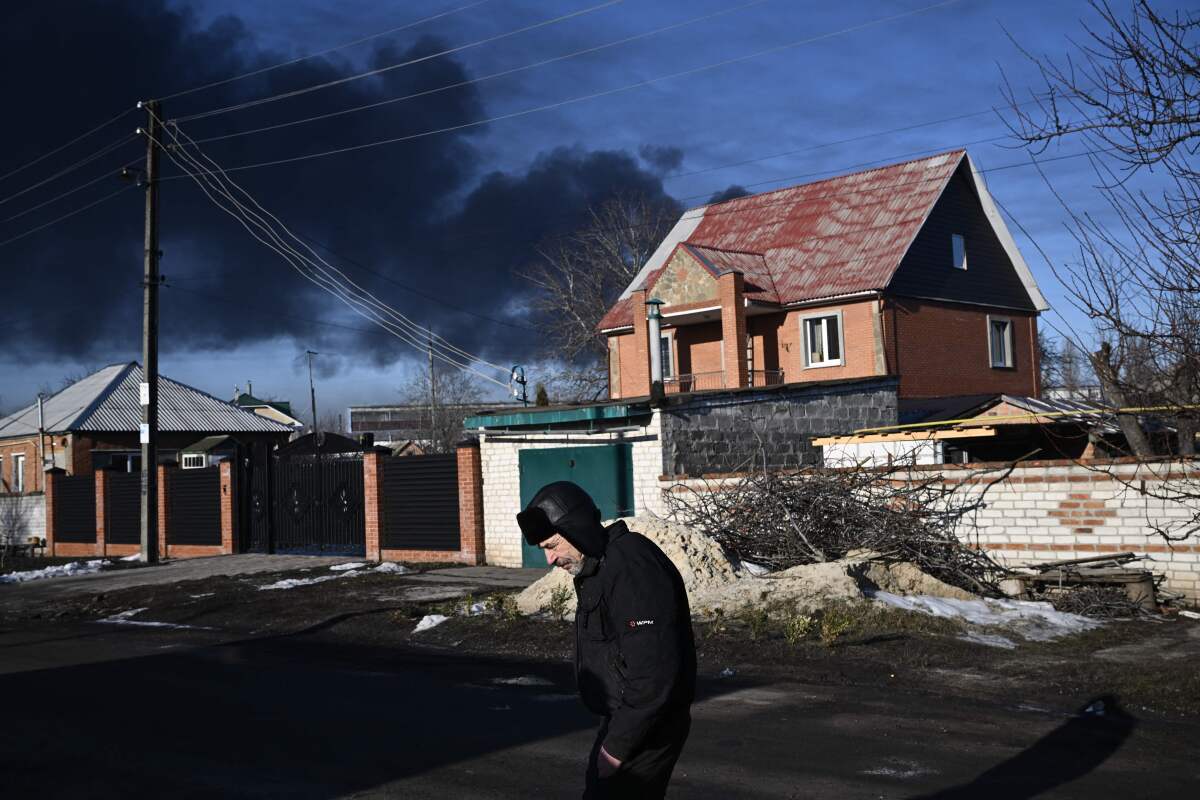
Several hours after Odessa awoke to explosions Thursday morning, Avraham Wolff, the city’s chief rabbi, got a call from a nearly 90-year-old Holocaust survivor. The man was so distressed he could barely speak.
“He cried and cried, and I just listened to him,” Wolff said. “I told him that everything is OK, the Russians are not coming to kill us, these are not Nazis.”
For weeks, the rabbi had prepared for the possibility that Russia could invade Ukraine. He bought several tons of sugar, macaroni, rice, flour and water, hired 20 security guards and reserved buses to evacuate thousands of Jews to neighboring Moldova.
But the bus drivers, like so many others, have fled the city, with some lines to cross the border stretching more than a mile. Wolff’s job now is to calm and feed congregants, many of whom are elderly and too scared to leave their home.
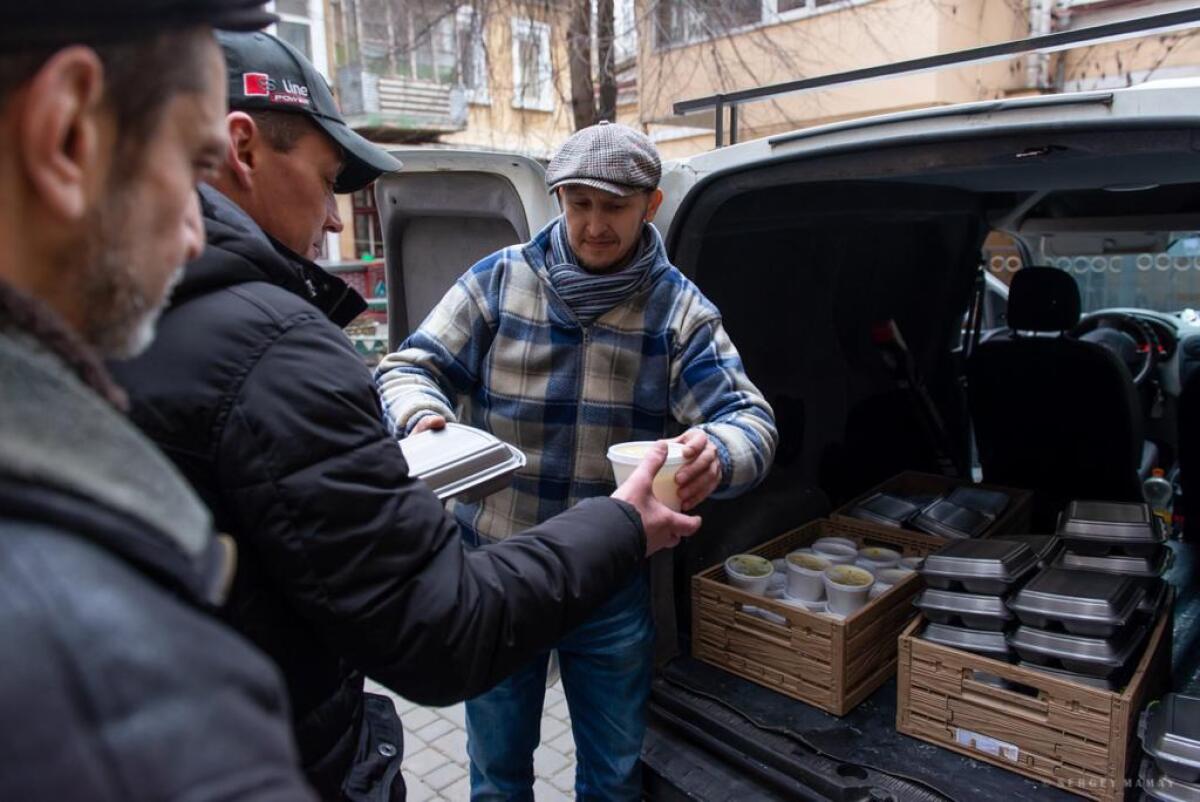
The invasion has thrown all of Ukraine into crisis, and the panic is acute in the Jewish community, where Holocaust survivors and their descendants carry a long history of trauma. Synagogues have turned into shelters, while some Jews try to flee to Israel.
And when people don’t know what to do, they call their rabbi.
“I got hundreds of phone calls from people with fear,” said Wolff. “People are worried and they call us all day, from morning until night.”
Ukraine was once home to the largest population of Jews in Europe after Poland. The vibrant community, which included Jewish schools and theaters, started to wane after waves of anti-Jewish riots under Russian czars in the late 1800s and the following decades spurred massive migration to the United States.
During the Holocaust, an estimated 1.2 million to 1.4 million Jews in Ukraine were killed, according to Wendy Lower, a historian at Claremont McKenna College. Hundreds of thousands died in gas chambers or in mass shootings. Others died from malnourishment in ghettos.
No longer welcome in rural towns where Nazi sympathizers had lived, many survivors of the war moved to big cities. In the decades that followed, antisemitism sent Jews fleeing, often to Israel.
Today, Ukraine, home to tens of thousands of Jews, has a Jewish president, and Kyiv, its capital, has several Jewish schools.
In a statement criticized by academics and others as a false pretext for going to war, Russian President Vladimir Putin said this week that his military operation aimed to “denazify” Ukraine.
Elka Inna Markovitch, the wife of the chief rabbi of Kyiv, said she is nervous because Jews have a long history of being used as scapegoats.
“Very often when things go wrong, the Jews are to blame,” she said. “...This is also very scary.”
Israel has called for all of its citizens in Ukraine to leave immediately. The Jewish Agency for Israel, an organization that helps Jews settle there, said that it had opened an emergency hotline to help Ukrainians move to Israel.
But several community leaders say that they have decided to stay — for now — to help their communities.
As Russian forces push deeper into Ukraine in the largest ground war in Europe since World War II, Ukrainian officials urge citizens to fight back.
Markovitch said that she needs to care for the elderly. She recalled visiting a 104-year-old Holocaust survivor a few days ago who had held her hand, and asked for her support.
“They’re terrified, there’s no other way to describe it,” she said. “They say, ‘We started our life with the war and we’ll end our life with war.’”
Her 27-year-old daughter-in-law, Cherry Markovitch, who helps run the Chabad house in Kyiv, one of many outposts around the world under the Hasidic Orthodox Jewish movement, spent weeks stocking a community center with bags of dry food and about a hundred mattresses. Families had called to ask if they could shelter there if things got bad.
When sirens woke Markovitch on Thursday, she grabbed her three kids, packed several suitcases and took her family to the center. Other families trickled in throughout the day, and the community held prayer services and a Bible study class. They even danced to ease their anxiety.
Markovitch said her family has tickets to travel to Israel in the coming days, but she assumed the flights would be canceled.
“Everyone is asking, what’s your plan for Shabbat, what’s your plan for tomorrow?” she said. “We’re literally going hour by hour.”
Meanwhile, rabbis in countries bordering Ukraine are preparing to take in refugees.
Fleeing Ukrainians have begun trickling into a Chabad house in Chisinau, the Moldovan capital, which has about 100 beds for refugees.
Zushe Abelsky, a rabbi who runs the Chabad house but is currently in the U.S., has helped organize the relief operations.
He’s worried about a shortage of kosher food, pointing to how it’ll be difficult to cross the border to get the items the Chabad normally receives from Odessa. He predicted the Chabad will receive at least 150 people this Shabbat, about triple the usual amount.
“With more people you have to be ready with food,” he said. “Our rabbis over there are also in distress.”
The anxiety has spread to the Ukrainian and Russian diaspora — including in Los Angeles. The Jewish Federation of Greater Los Angeles has announced a fundraiser to help supply Ukrainian families with food, dispatch mobile medical units and transport people out of conflict zones.
L.A. resident Anastasia Shostak, 27, has family in the northeastern city of Sumy, where Ukraine is fighting Russian forces. She said they have been hiding in a neighbor’s basement.
She was up all night on Wednesday filling out paperwork to try to help evacuate her grandparents, who live in Russia, to Israel. She’s concerned about how the conflict may affect them but has been unable to schedule a visa appointment for them at the Israeli Embassy in Moscow.
“It’s been a challenge because they’re overwhelmed, they’re not picking up the phones, they’re not responsive — which I can totally understand given the circumstances, but it worries me,” she said.
More to Read
Start your day right
Sign up for Essential California for news, features and recommendations from the L.A. Times and beyond in your inbox six days a week.
You may occasionally receive promotional content from the Los Angeles Times.
